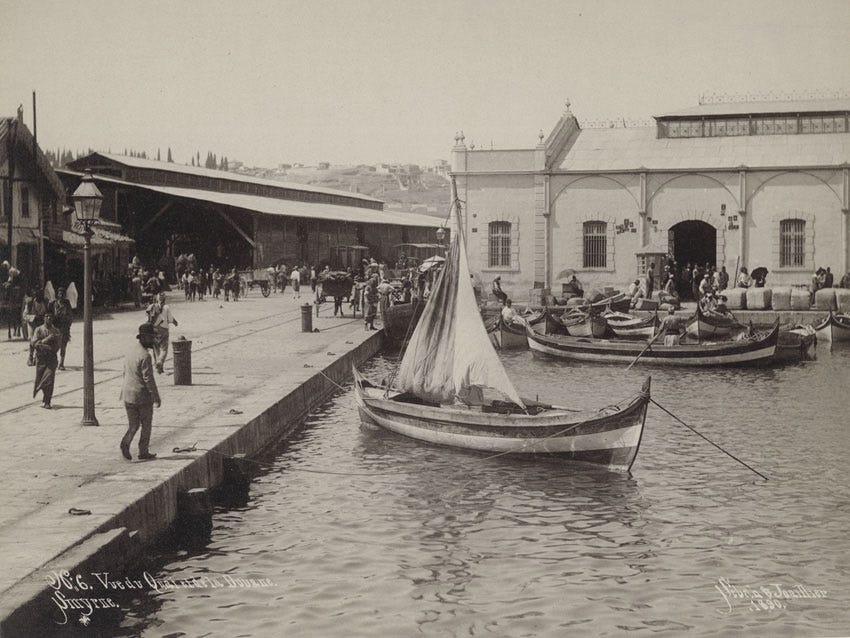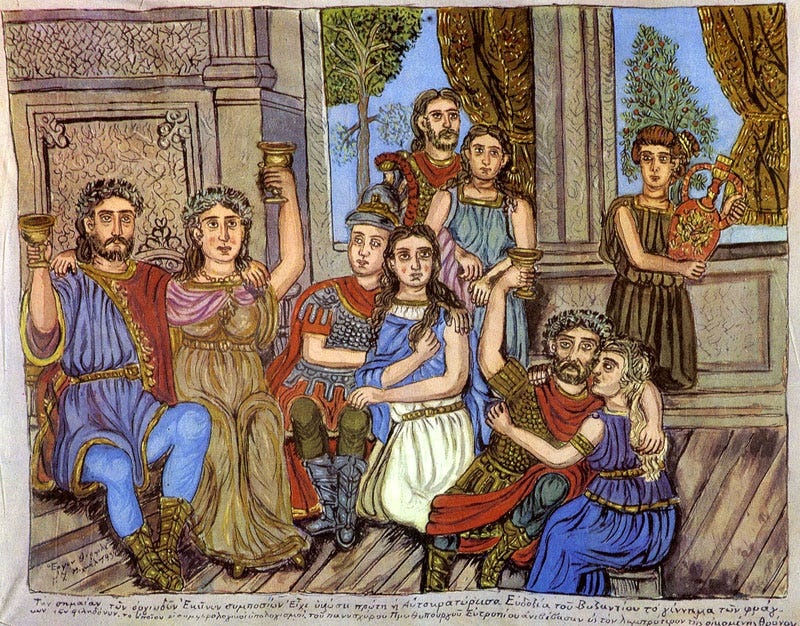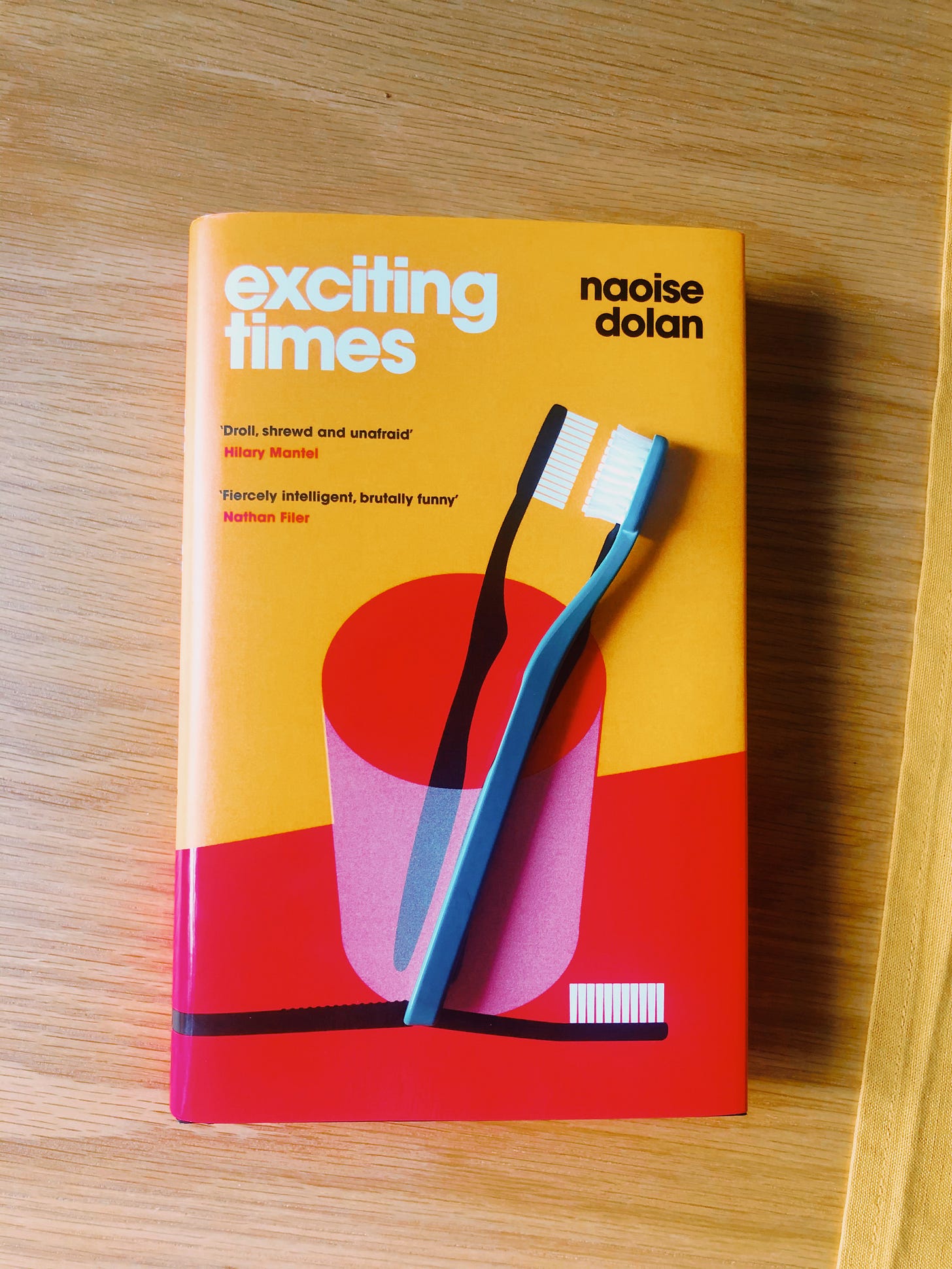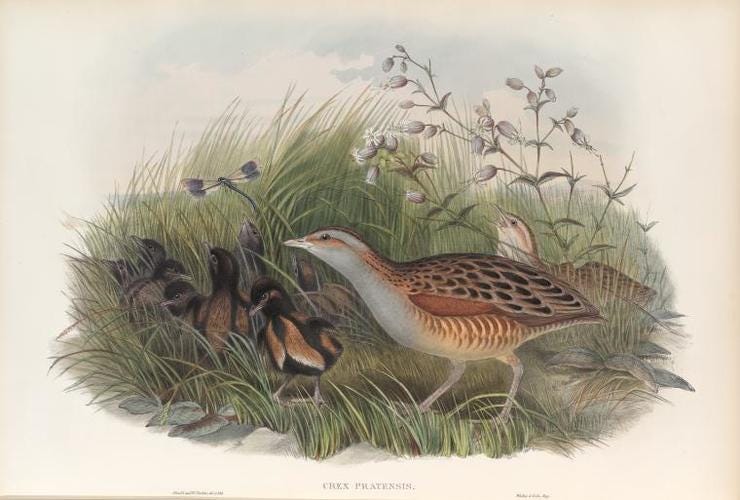Tipped: Issue #1
Greek folk painter Theophilos Hatzimihail, Irish writer Naoise Dolan, and nature sounds across the world
Gallery wall
I didn't know I needed Greek folk painter Theophilos Hatzimihail in my life. My first research into him went off on a tangent as I was too stubborn to find what his surname meant. Apparently, the prefix -Hatzi means the 'one who has made pilgrimage'. In this case, it should mean ‘Mihail who has made pilgrimage’ (to Jerusalem). He was a terrible student but I attribute this to being forced to write with his right hand although he was left-handed, a practice which may cause learning disorders in children. Yes, tangent. At one point in his life, he worked as a gatekeeper at the Greek consulate in Smyrna, my hometown. Here's what the city probably looked like when he was there:

Sébah & Joaillier. "No:6, Vue de Quai et de la Douane, Smyrne". 1890.
After the Greco-Turkish war broke out in 1897, he left Smyrna, stopped in Volos for a while, left there when someone pushed him off the ladder (!), then eventually settled in Lesvos. He was considered a half-crazy man by his fellow islanders and made fun of for he wore the traditional Greek kilt fustanella, carrying a yataghan. He and his friends would dress up as Olympic Gods at Annual Carnival, with Theophilos always being Ares:
He would wear a crown of gold-colored cardboard and carry a wooden spear with its point covered in silver paper and a round shield made of a thin board. On the shield would be painted the head of Medusa with her snake hair.

Symposium of Empress Eudoxia, Theophilos Hatzimihail
Rather too Quixotic for his times, he was constantly mocked and eventually pushed to obscurity (although he had a patron later on in his life). Theophilos often used Greek history and local traditions in his paintings, and posthumously exhibited in the Louvre as a ‘genuine folk painter in Greece’, although one should reckon his commitment to staying true to his authentic self as his ultimate success.
Enjoy his paintings and detailed information here.
Reading well
Exciting Times by Naoise Dolan (Orion Publishing Co, 2020) is the first book I physically purchased months after the initial lockdown, and my excuse to chat to the owner of my local bookstore which closed its doors for three months. I have been eyeing and resisting it for a while because the hardback is a bit pricey, but I am a sucker for good covers. I am glad that I have lost that battle though, because Naoise’s writing is such a treat and cure to your Sally Rooney withdrawal. However, I was more amused with how she nailed down the intrinsic pain modern work life inflicts on us and how one masks herself, rather than how she precisely dissected the fluid dynamics of love in your 20s.

Me being cheeky.
Some mornings I didn’t leave the bed because then I’d have to brush my teeth, followed by a series of actions that amounted to living my life as the person I was. I was unable to drum up positivity about either dental hygiene or the rest of my day, so I told myself I was disgusting and lazy and I’d be late and they’d fire me, and then I got up.
What else can brilliantly sum up the torturous motivations of a millennial and work that is done only for sustenance?
Bonus: Read Dolan's take on self-loathing in your twenties on NPR (Hint: Everyone does it.)
Lost track of time
This week I’ve lost track of time listening to the sounds of woodlands and forests around the world. This open source soundmap will be presented at Timber Festival 2021 in the National Forest in the Midlands. I feel vindicated that I have been recording nature sounds on my phone (although I love recording urban sounds e.g. trains).
Go listen to the nature sounds in Kaluga Oblast in Russia, the waterfalls in Samothrace Island in Greece, the wildlife in Mount Kaz (Ida) in Turkey, birds of Enderby Island in New Zealand (sweetest thing in the world), and the Corn Crake bird in Donegal, Ireland (the original alarm clock).

Rare Book Division, The New York Public Library. "Crex pratensis. Land-Rail, or Corn Crake." The New York Public Library Digital Collections. 1862 - 1873.
Hope you enjoyed my ramblings. I’d be so happy if you can forward this to a few friends! 🌿
See you next week!





Very well written!!
Derya please keep writing. Sadly I think I have lost most of my Turkish but you are an amazing writer in English! I have a huge smile on my face right now.